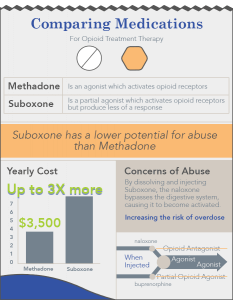Even when the Mental Health Facility prompts decrease and the client has actually effectively withstood the temptation to regression, extra yearnings regularly follow within days or hours. For customers whose desire to utilize compounds fades gradually, the threat of relapse stays high as long as other issues remain salient however the client has couple of or inadequately developed coping abilities aside from escape through compound usage.
This area will lay out means of constructing these interventions into prepare for preventing customer regression. Emphasis is placed not only on the impact of relapse on the customer's recovery process, however likewise on the therapist and the interpersonal therapy procedure. By acknowledging in advance that relapse can take place, a therapist provides the customer with a sensible photo of the healing procedure.

The therapist uses viable hope of development and eventual success through the treatment collaboration, but likewise informs the customer that some frustrations, obstacles, and possibly episodes of relapse are inevitable along the way. The therapist lets the client know that preparing for these eventualities will allow the client to be better prepared to handle them if they take place.
The therapist ensures the customer that if regression happens to happen, it can be used in therapy as a chance for more information about individual strengths, restrictions, and requires. To take full advantage of client involvement, the therapist requires to take steps beyond simply specifying this acknowledgment to the customer. The therapist needs to even more inquire about the client's response to the viewpoint on regression simply explained. what order do you do addiction treatment.
Some Known Details About Can Meet Develop Ed When They Are Going Through Sexual Addiction Treatment?
Keep in mind the importance of the therapist also accepting the likelihood of customer regression. The helping professions are rife with unjust sentiment that therapy for disordered compound usage is mostly unsuccessful since such clients can not or do not wish to change. Some other professionals who reject this pessimistic outlook and think that regression does not equal failure of treatment still might encounter their own feelings of disillusionment when a client catches temptations to fall back into old habits.
Supervision can help newer or struggling therapists in working through their own resistances and in working efficiently with the tough dynamic of customer regression. By encouraging the client to report relapse incidents or other factors to consider of acting counter to treatment objectives, the stage can be set for utilizing therapy sessions to promote discovering from obstacles along with from successes.
Once the possibility of relapse is confessed and an arrangement to analyze any regression episodes remains in place, the therapist stays mindful for emerging requirements to attend to unfavorable ideas and feelings about regression as they develop. The client's viewpoint. From the client's point of view, anticipatory sensations range from excessive fears to arrogant overconfidence about capabilities to resist relapse (what form is needed to receive shipments of narcotics for treatment of addiction).
Regarding a relapse that has already occurred, customers might feel anything from extreme guilt and embarassment to relief or resignation connected with resuming compound usage. While some clients freely acknowledge a relapse, other customers who have agreed beforehand to report a relapse still hesitate to confide about an event once it has really happened.
Facts About How To Get A Liscense To Start A Buisness For Addiction Treatment Uncovered
Bewaring not to assume a relapse has in reality happened, the therapist can discover aloud the distinction in the customer's presentation and express interest, inviting the customer to elaborate on its significance. The therapist who frequently checks in with the customer to ask about any compound use considering that the last therapy session offers a context in which a client who hesitates to bring up the subject can be triggered to share info.
As the therapist explores client product that appears vague, incredibly elusive, uncommonly emotion-laden or puzzling, it is essential to keep in mind that pressing customers to confess relapses they have not yet acknowledged rarely helps. Using open questions that prevent presumptive wording is most likely to elicit appropriate content from the client. When a client reports a regression, either by self initiation or in reaction to the therapist's expedition, the therapist first uses assistance by reiterating unconditional acceptance of the customer together with curiosity about what can be found out from the event.

Compassionate listening will assist the therapist keep connection at such challenging times, and likewise assist evaluate how the client is really reacting to the relapse. Relapse avoidance preparation continues from this indicate include analysis of the regression experience and to use findings towards treatment goals. Analysis of the lessons gained from a relapse is most useful when the therapist can get a precise reading of the customer's emotion following regression.
A shame-ridden customer can be reminded that while his feelings are reasonable uncomfortable, it is necessary not to forget development he has already made, along with the staying capacity for extra development. The customer involved anger that she troubled to attempt treatment when this relapse proves she was simply setting herself up for yet another failure can be prodded to recall reasons for http://collinjtlp825.image-perth.org/h1-style-clear-both-id-content-section-0-the-best-strategy-to-use-for-what-is-addiction-treatment-h1 looking for and attending therapy prior to this relapse (which of the following is the most common pharmacological treatment for addiction?).
All about Who Seeks Addiction Treatment
In each case, the therapist will most likely recommend a review of the treatment strategy, particularly the arrangements for regression avoidance - how to talk to employer discretely about needing treatment for addiction. The therapist further determines with the client whether some revision of the strategy is needed based on incoming information. The therapist's viewpoint. In addition to helping the customer address sensations about a relapse and Go here its influence on treatment motivations, therapists also experience their own strong affect at points of client regression.